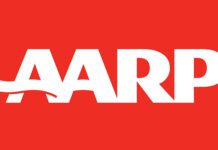
The restaurant industry has been among the hardest-hit sectors during the economic downturn tethered to the COVID-19 response.
To help bring jobs back and revive the industry, the American Rescue Plan, signed into law last month by President Biden, established the $28.6 billion Restaurant Revitalization Fund at the U.S. Small Business Administration.
On Wednesday, SBA Administrator Isabella Casillas Guzman announced key details on application requirements, eligibility, and a program guide for the RFF. The SBA will administer the funds to the hardest-hit small restaurants.
“We are starting the process to help restaurants and bars across the country devastated by the pandemic, and this is our message: Help is here,” Guzman said. “With the launch of the fund, we’re prioritizing funding to the hardest-hit small businesses – irreplaceable gathering places in our neighborhoods and communities that need a lifeline now to get back on their feet.”
Guzman said the SBA “aims to be as entrepreneurial as the entrepreneurs we serve.”
“We are focused on ensuring that the application process is streamlined and free of burdensome, bureaucratic hurdles – while still maintaining robust oversight,” Guzman said. “That means meeting every small business where they are, and giving them the support they need to recover, rebuild and thrive.”
Under this announcement, details on application requirements, eligibility, and a program guide are now available in English at www.sba.gov/restaurants or in Spanish at www.sba.gov/restaurantes.
Ahead of the application launch and over the next two weeks, the SBA will establish a seven-day pilot period for the RRF application portal and conduct extensive outreach and training.
The pilot period will be used to address technical issues ahead of the public launch. Participants in this pilot will be randomly selected from existing PPP borrowers in priority groups for RRF and will not receive funds until the application portal is open to the public.
Following the pilot, the application portal will be opened to the public. The official application launch date will be announced at a later date. For the first 21 days that the program is open, the SBA will prioritize reviewing applications from small businesses owned by women, veterans, and socially and economically disadvantaged individuals. Following the 21-day period, all eligible applicants are encouraged to submit applications.
The groundwork for this announcement is the result of a comprehensive effort to reach out to diverse stakeholders in order to understand the needs and barriers restaurants face in accessing emergency relief aid.
Erika Polmar, executive director of the Independent Restaurant Coalition, said local restaurants and bars are “being served very good news.”
“These guidelines were crafted by the SBA after conversations with independent restaurant and bar operators across the country,” Polmar said. “We are grateful to the SBA for their hard work to make this process as accessible as possible in a short period of time.”
Community business leaders from underserved communities also welcomed RRF assistance as much-needed economic relief and are working with their broad membership bases to navigate the grant application process. “In addition to historically having less operating liquidity and revenue than almost any other small business demographic, Black-owned restaurants received significantly less stimulus funding during the COVID-19 pandemic, heightening challenges and leading to disproportionate closures,” said Ron Busby, Sr., president and CEO, U.S. Black Chambers, Inc. “The USBC believes this initiative and collaboration with the SBA will bring needed resources and relief to these often underserved businesses to aid in stabilization, recovery and ultimately, strengthen our economy.”





